After a year and half without face-to-face events, due to COVID-19, EASL celebrated its big return to onsite events with the Monothematic Conference: Bleeding, Thrombosis, and Vascular Liver Diseases, organised 7-9 October 2021 in Geneva. This hybrid event was a great success at different levels. In terms of attendance, EASL had the joy of welcoming 117 attendees onsite and another 109 online. The event was organised following all sanitary rules and the delegates fully experienced the excitement of meeting again in a safe and Covid-proof environment.
In this week’s article we invite you to catch a glimpse of the effervescence that animated these 3 days and the challenges that accompany the organisation of such events in a world that must now deal with COVID-19 measures.
Catch-up with some of the most inspiring tweets of the event
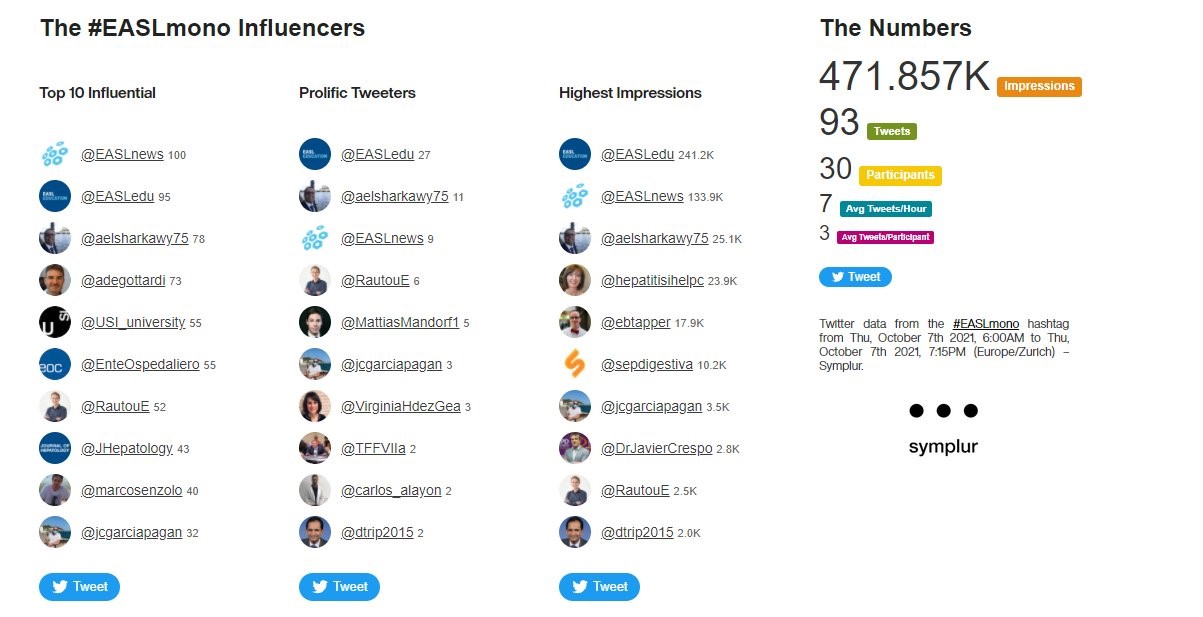
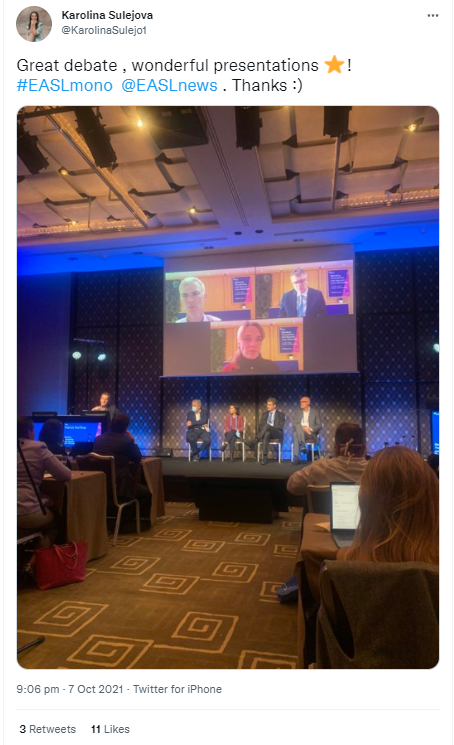
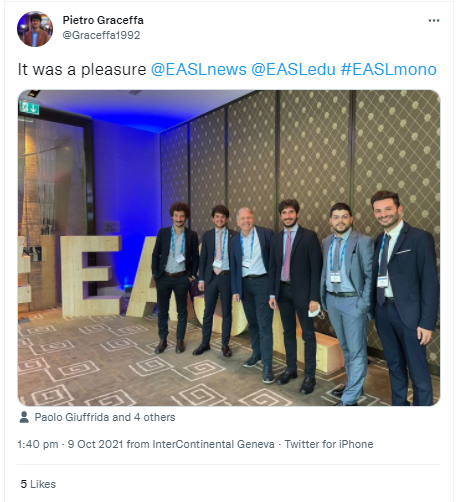
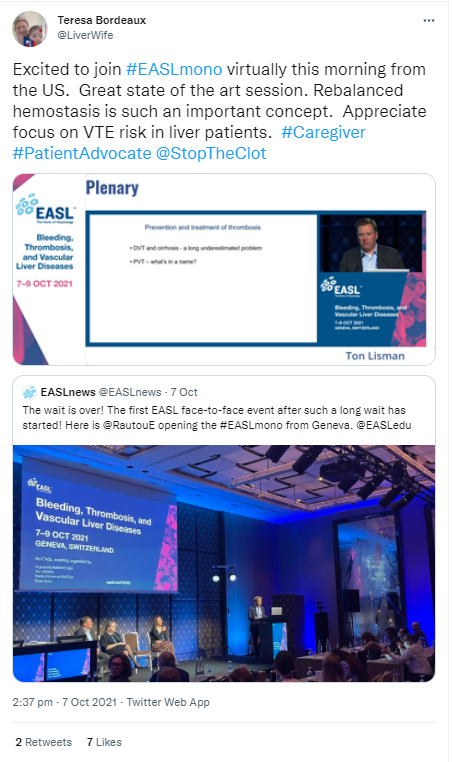
Catch-up the most engaging moments of the conference with this collection of pictures
Claire Chombeau, our charismatic Events Manager, accepted to share her thoughts on this event and her vision regarding the future of face-to-face events.
How does it feel to organise a face-to-face event again?
At first, it was a little clumsy trying to get back habits in logistics that hadn’t been used over the last year and a half. Apart from that, I am very satisfied by this event.
First, it was a great feeling seeing the delegates happy to be reunited again, especially because we took a real risk with this event as the onsite and online fees were the same. We feared that people would apprehend coming and would rather stay at home. But 117 delegates made it to Geneva, and we were able to offer them a safe and clean environment.
Second, because of the happiness of the organisers to meet their peers again and discuss a topic has not been tackled since 2015.
Finally, this conference was also a test for for our coming events: combining high-quality face-to-face meetings with on online experience for those that cannot attend in person.
The Mono was both held physically and digitally, what are the main challenges of hosting such an event?
The challenge here was double: deal with onsite speakers and delegates and online speakers and delegates. Thanks to the camera onsite that was panning over the delegates, online attendees could have the feeling they were in the conference room.
To get people interacting with each other was also a challenge. For instance, the use of the Slido tool in the management of live Q & A for onsite and online delegates, was very helpful in this.
It’s important to keep in mind that online events belong to a whole different field of activity which requires specific skills and a real know-how. Unlike traditional onsite events, here, there is no room for improvisation. We basically had to learn a whole new job in a year and a half.
Another difficulty lies in the fact that we depend on the IT set-up of people at home. If they have outdated devices or a bad internet connection, no matter how good the experience we offer, theirs will be bad, which broadens the range of uncertainties.
What is the plus side of a physical event over a digital event?
Without any doubt networking. Face-to-face events offer informal frameworks during the coffee breaks etc. that make discussions and interactions much easier. This is something hardly replicable on a digital platform. A plus side is also the experience. There is always the possibility to go for a walk through the city that hosts a face-to-face event.
How do you see the future of face-to-face medical events?
I am confident in the fact that the effects of the pandemic on face-to-face events were just a crisis, and that face-to-face events will continue to take place, because people will always have the wish to travel and meet their peers.
The way events have evolved in the last year and a half is the result of an inevitable change. Before COVID-19, events had already started a shift towards being more sustainable, with less printed items and more digital offer. For instance, the ILC 2019 was livestreamed.
Therefore, even though face-to-face will remain, a digital component will still be offered, allowing more people to attend more events. I think that the on-demand offer is very helpful for people living in different time zones. They don’t need to wake up at 3 a.m. anymore, they can quietly catch-up with the missed sessions later. In the end, this fast-tracked evolution has defined new sustainable norms.

Claire Chombeau
EASL Events Manager, Geneva
Online events belong to a whole different field of activity which requires specific skills and a real know-how. We basically had to learn a whole new job in a year and a half
Face-to-face events offer informal discussion frameworks that are hardly replicable on a digital platform
I am confident in the fact that face-to-face events will continue to take place
The way events have evolved in the last year and a half is the result of an inevitable change. […] This fast-tracked evolution has defined new sustainable norms.


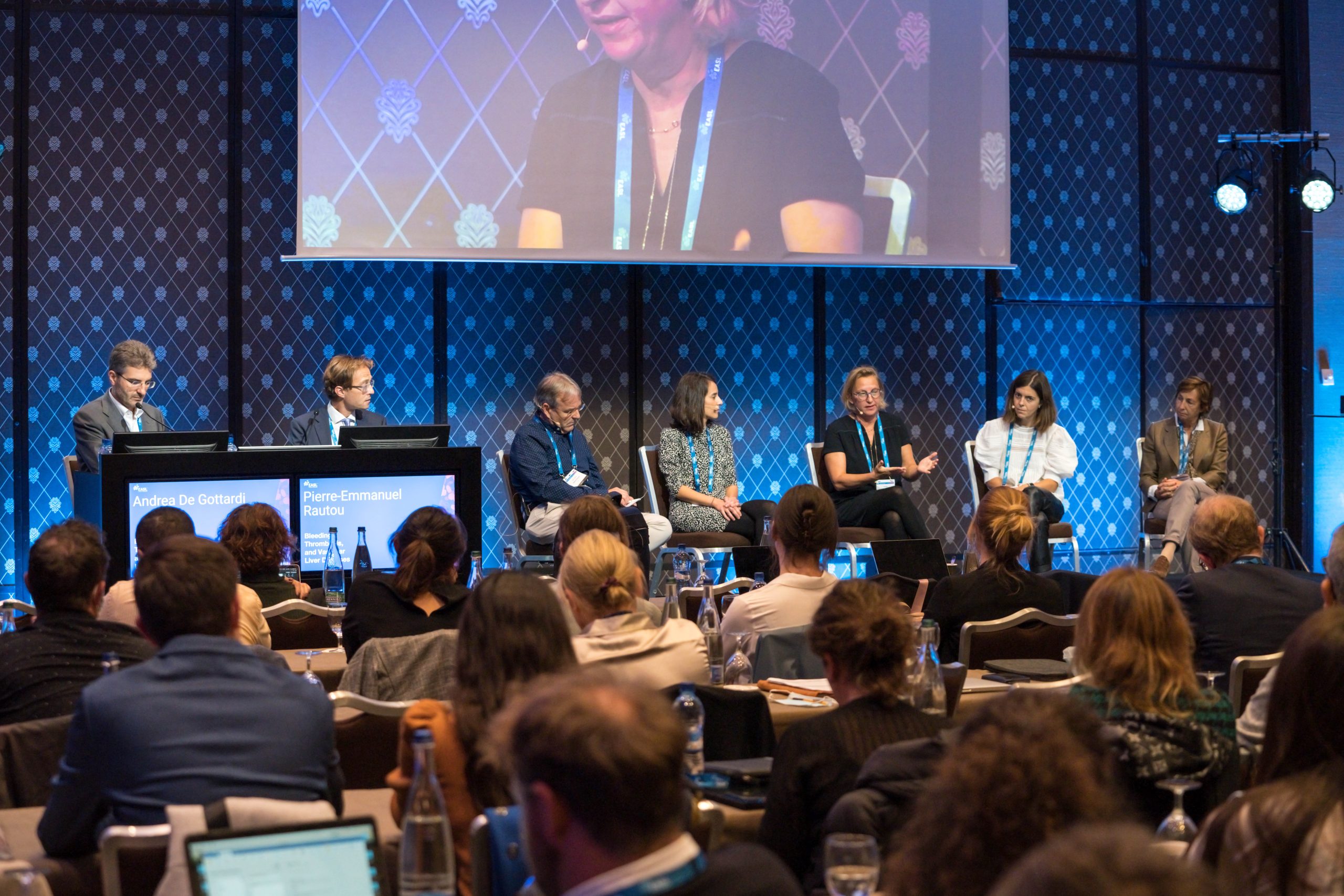
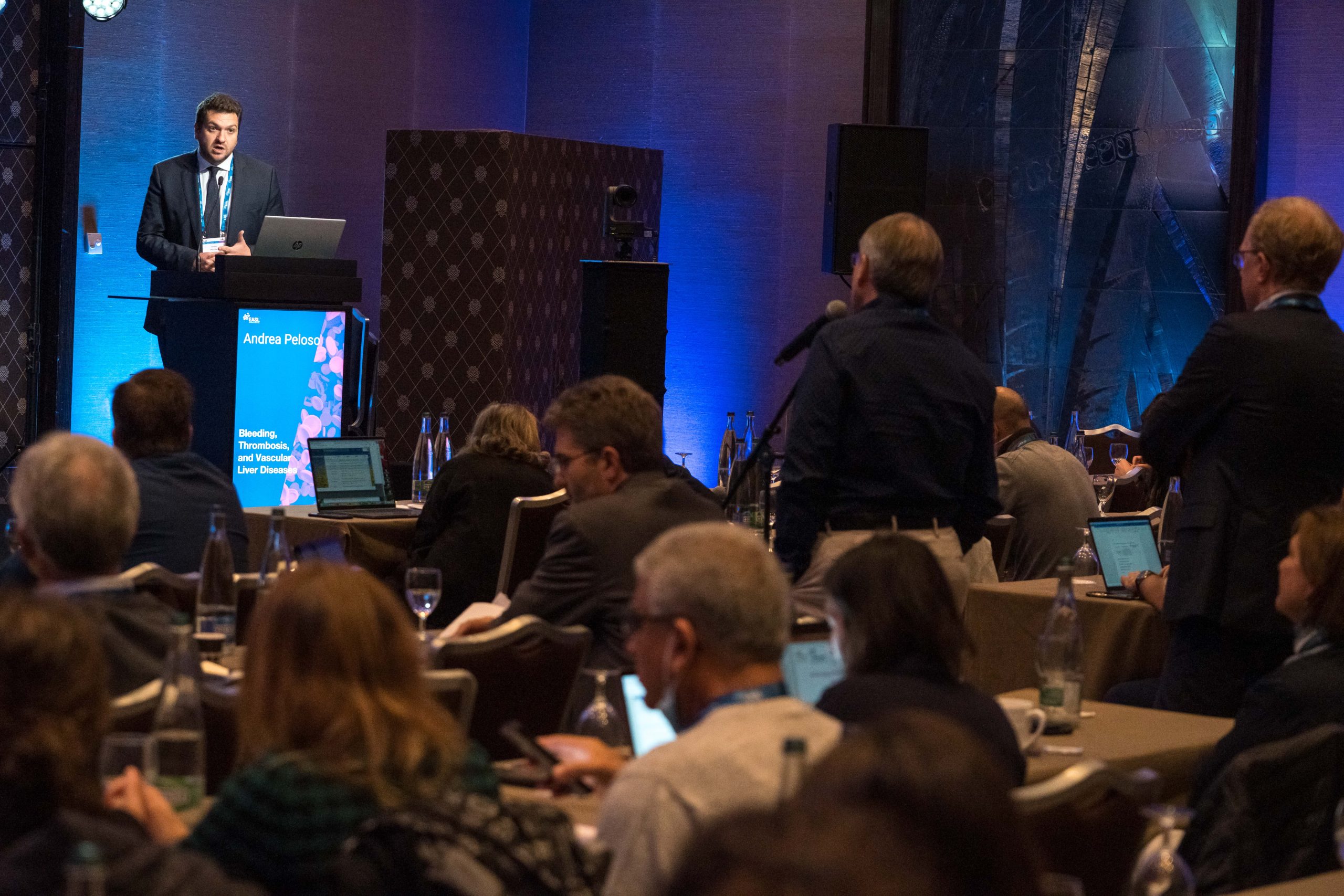
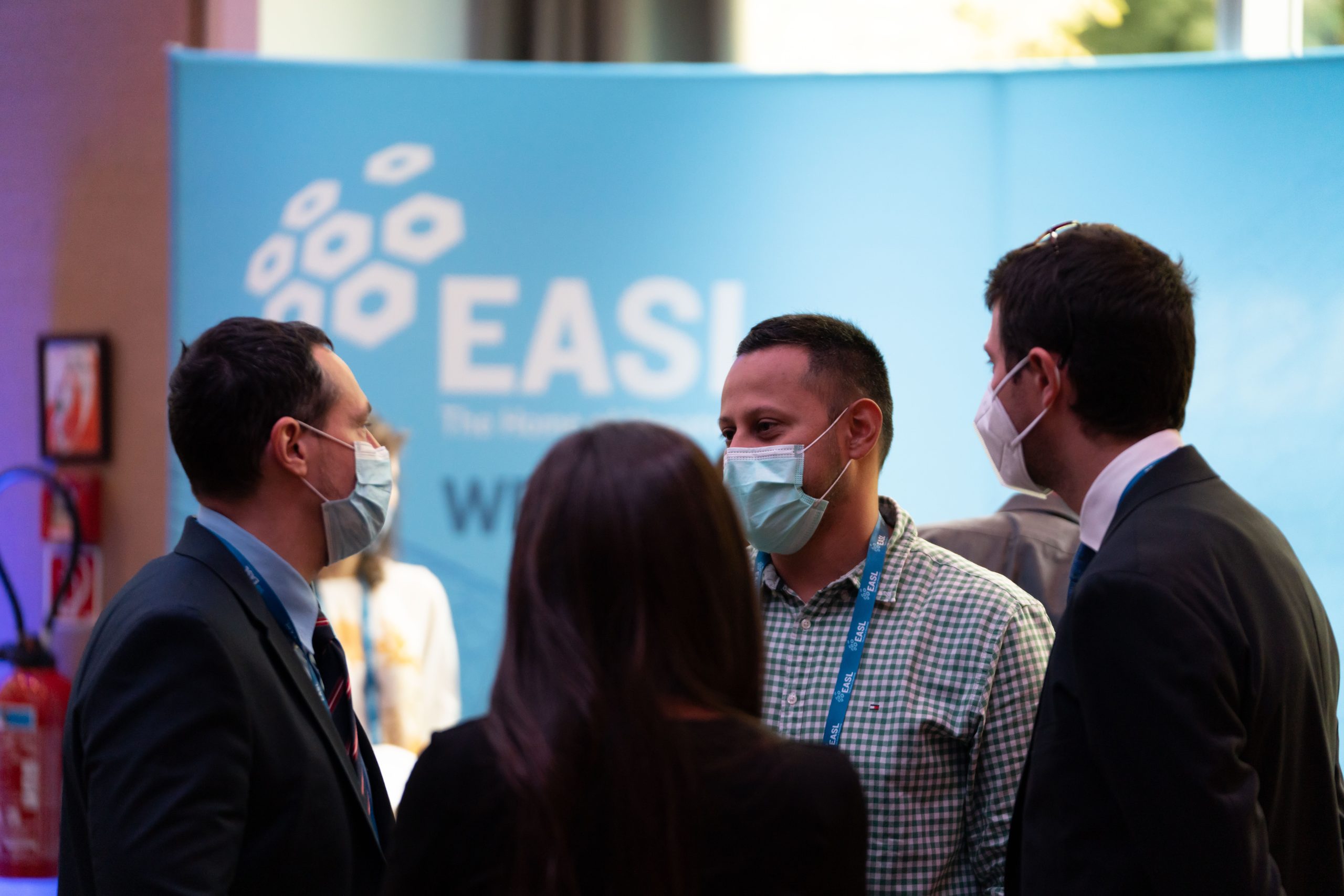
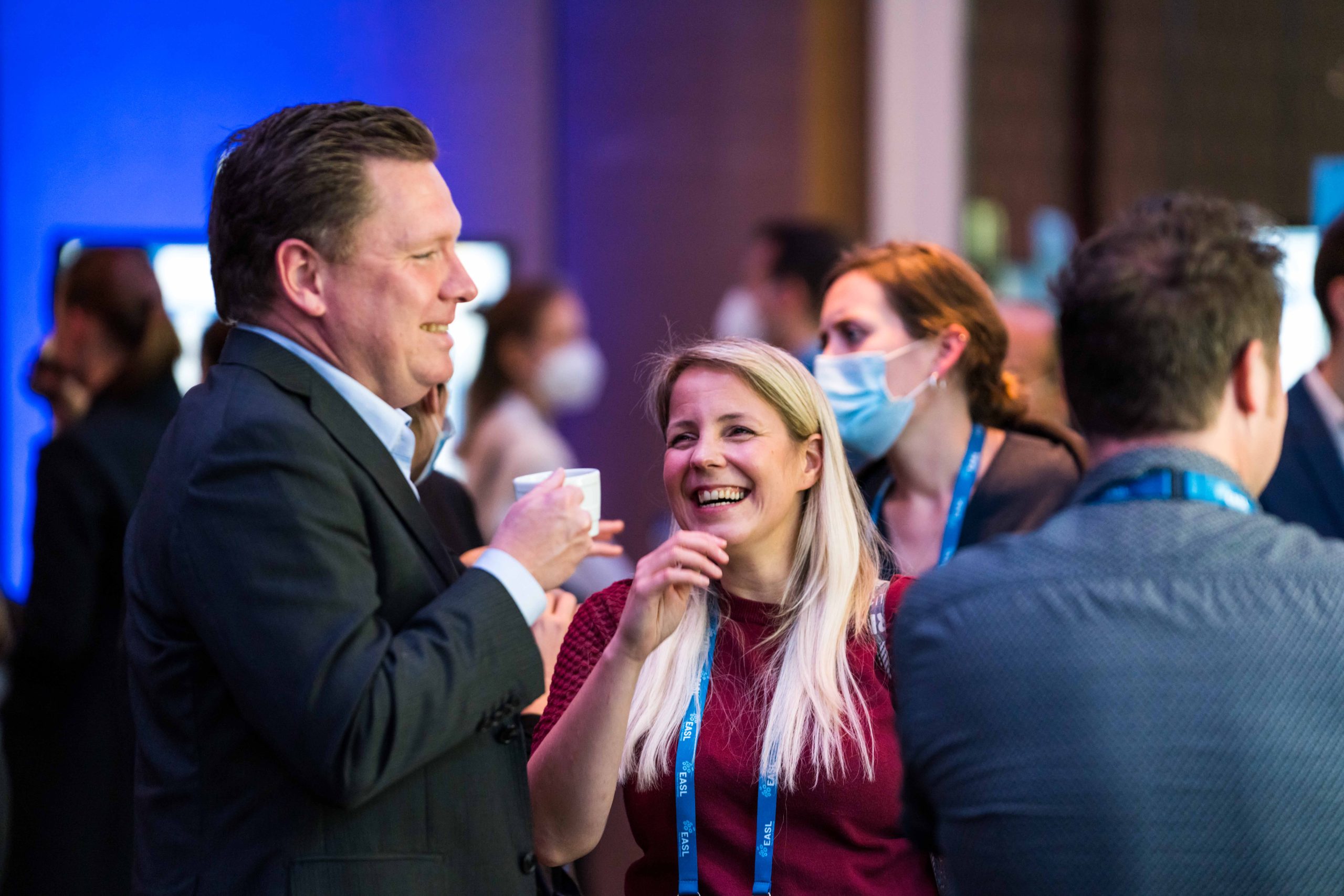
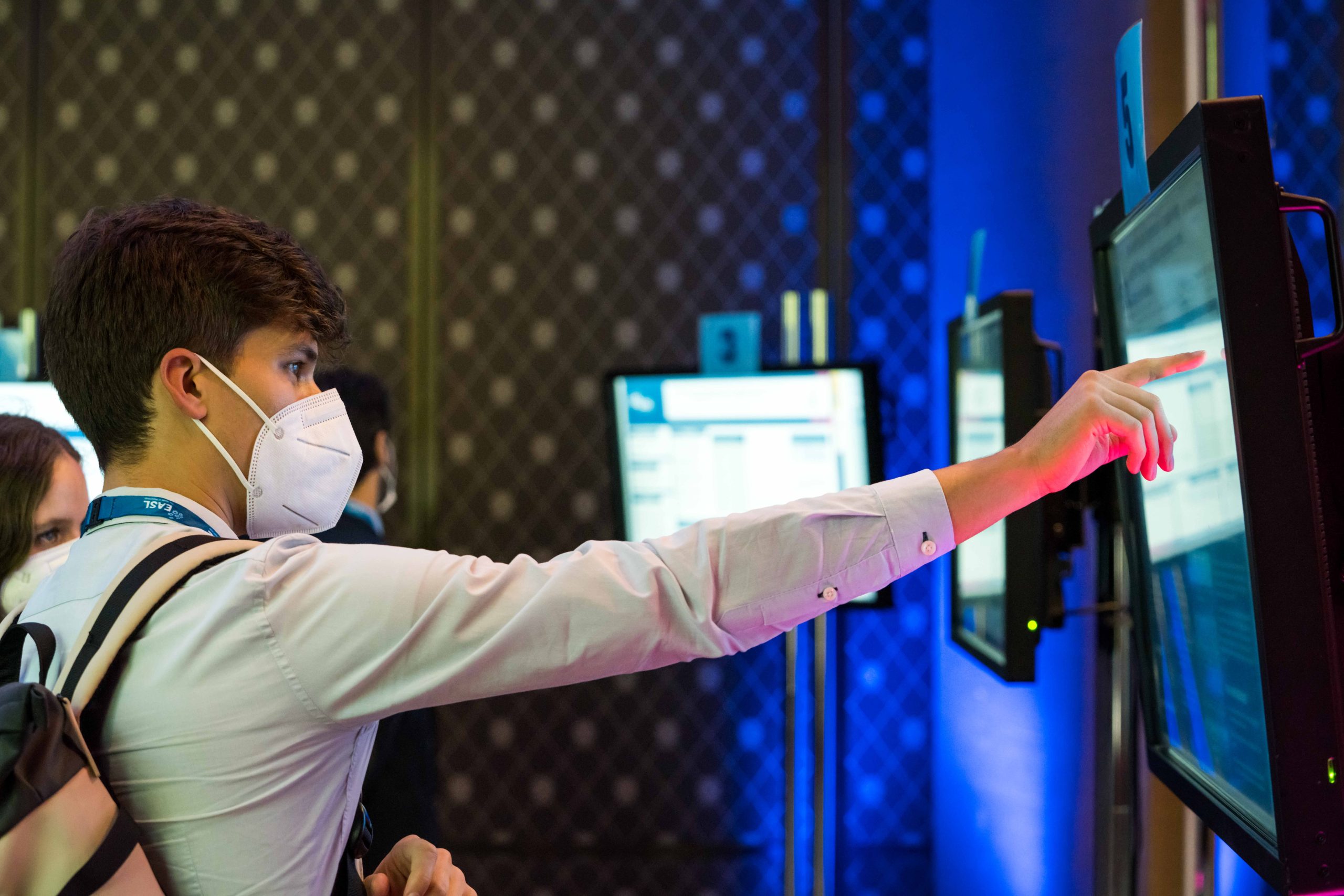
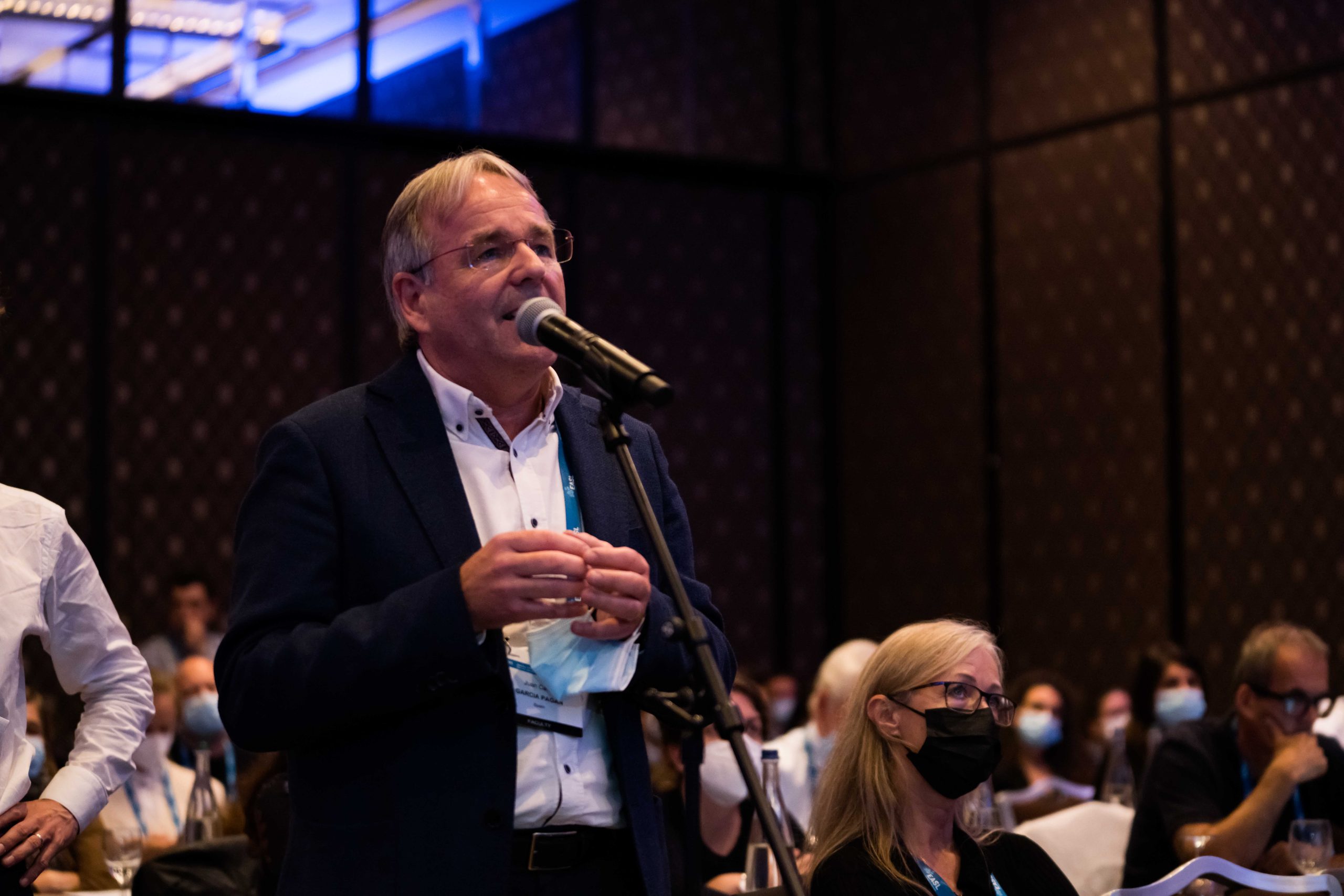
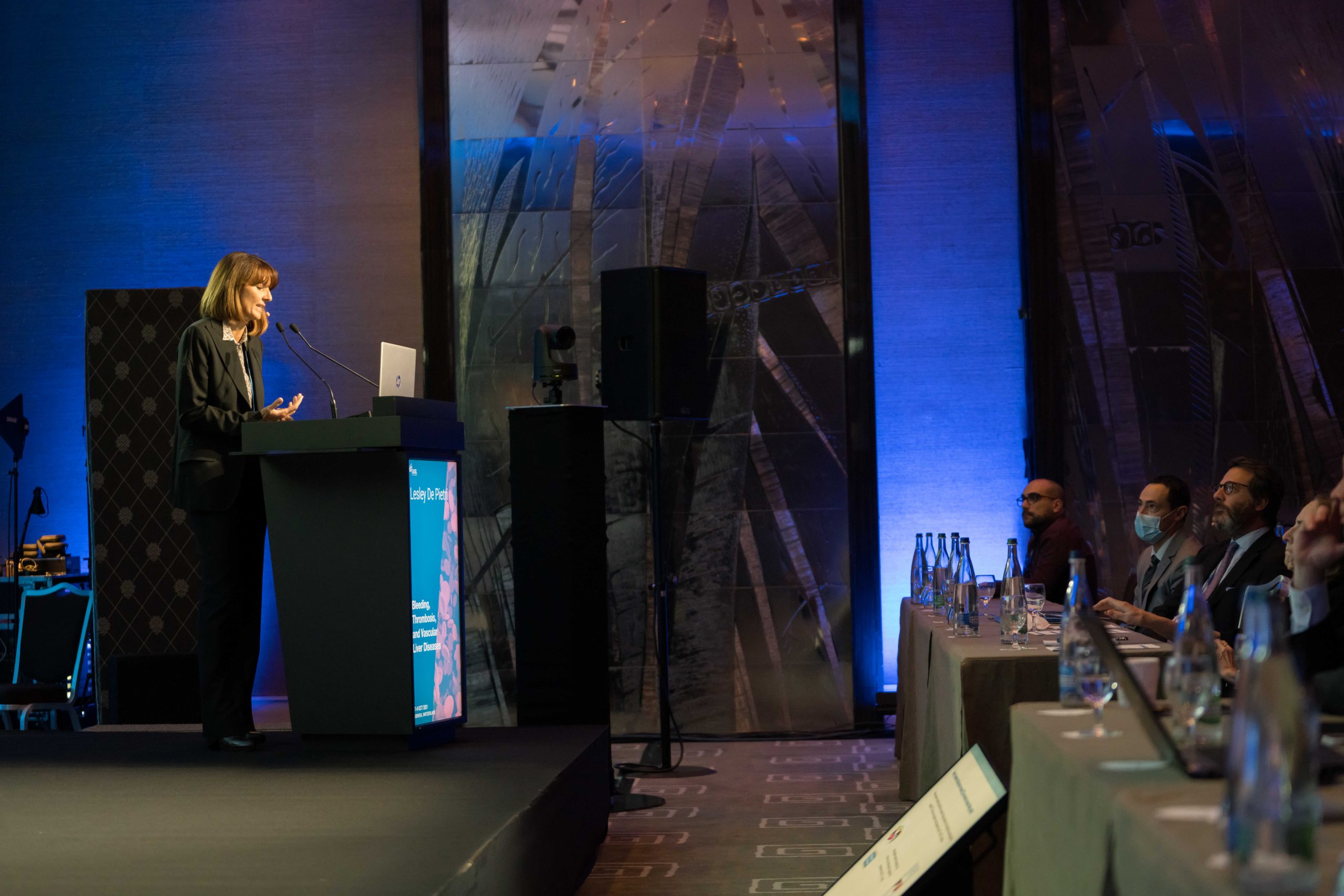
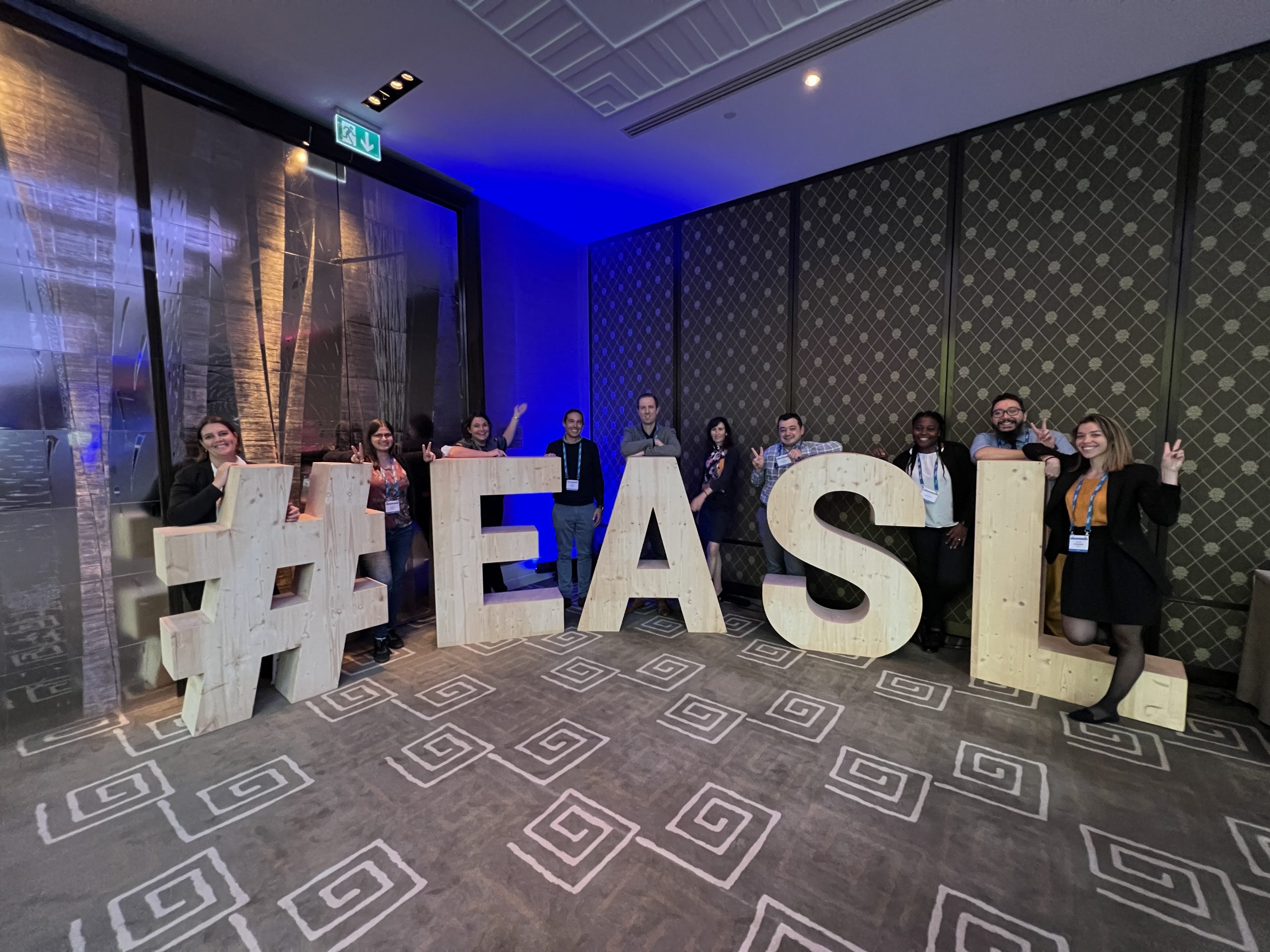
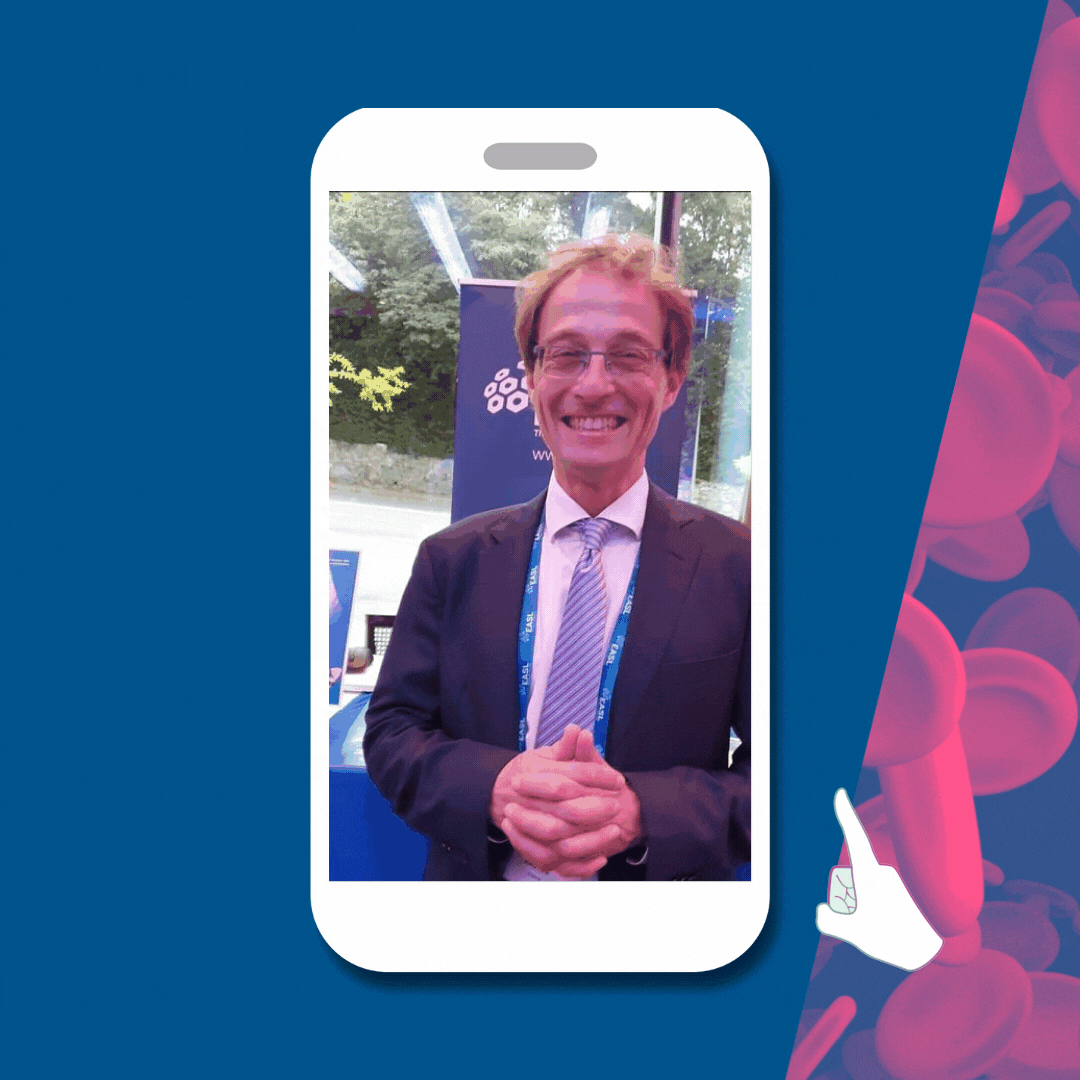
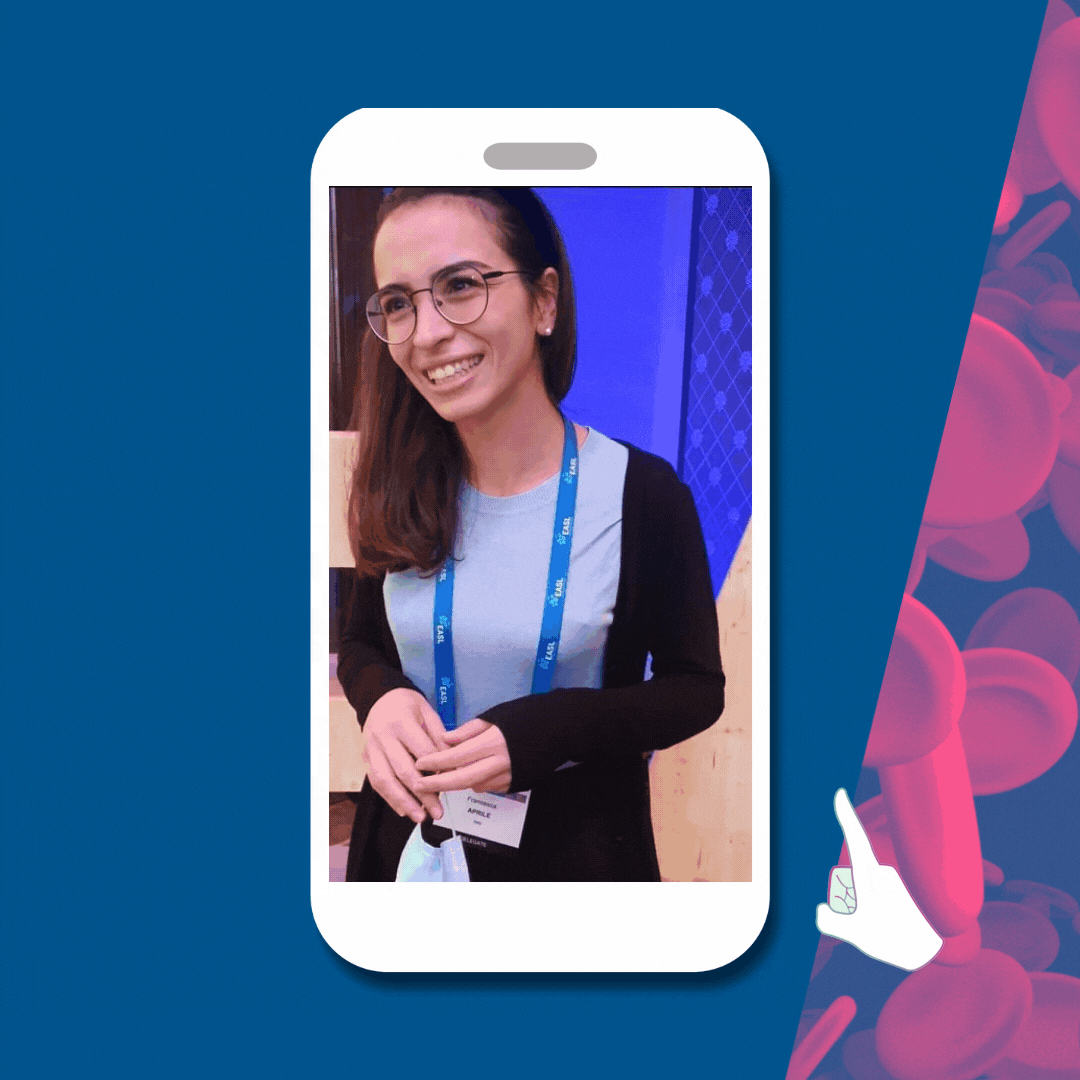
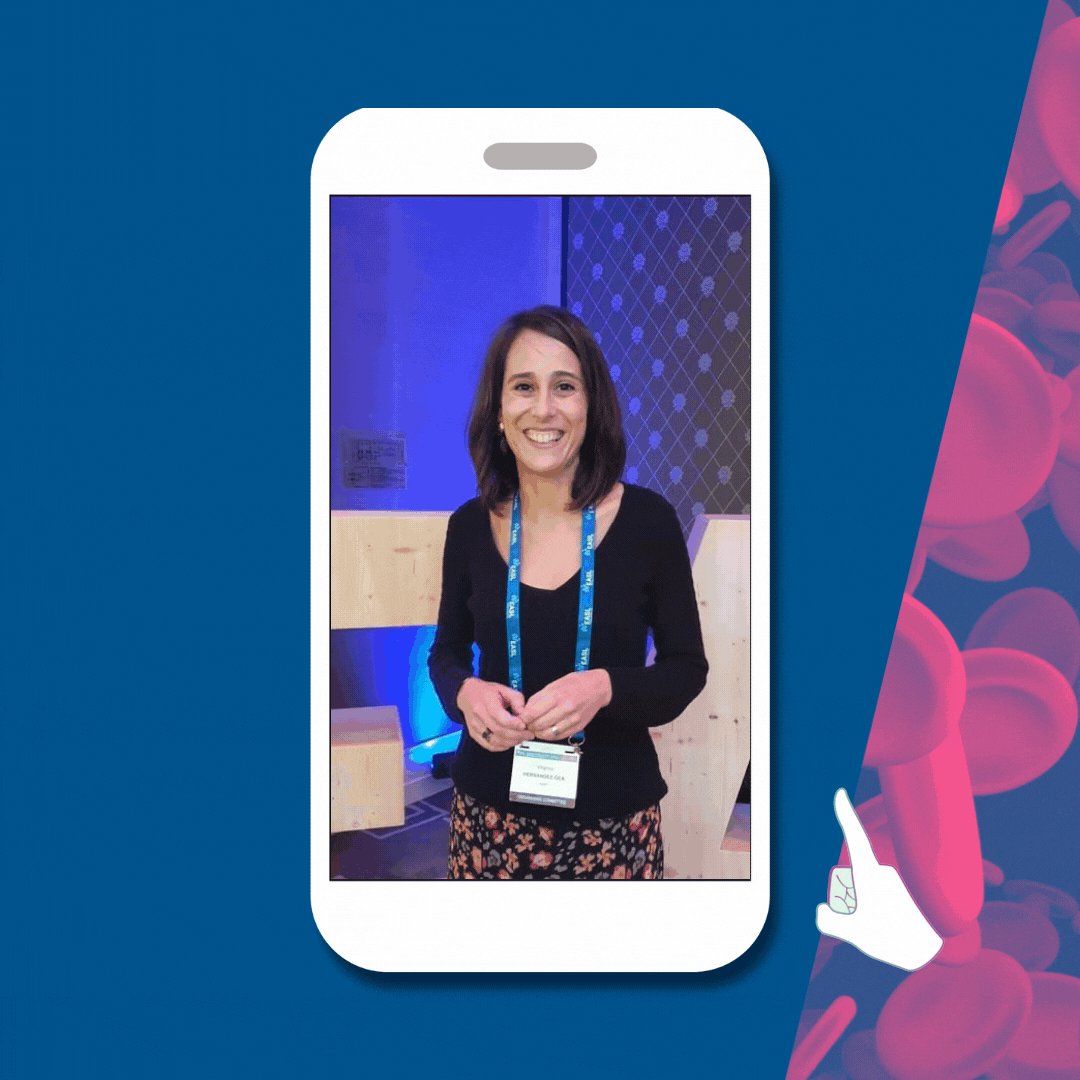
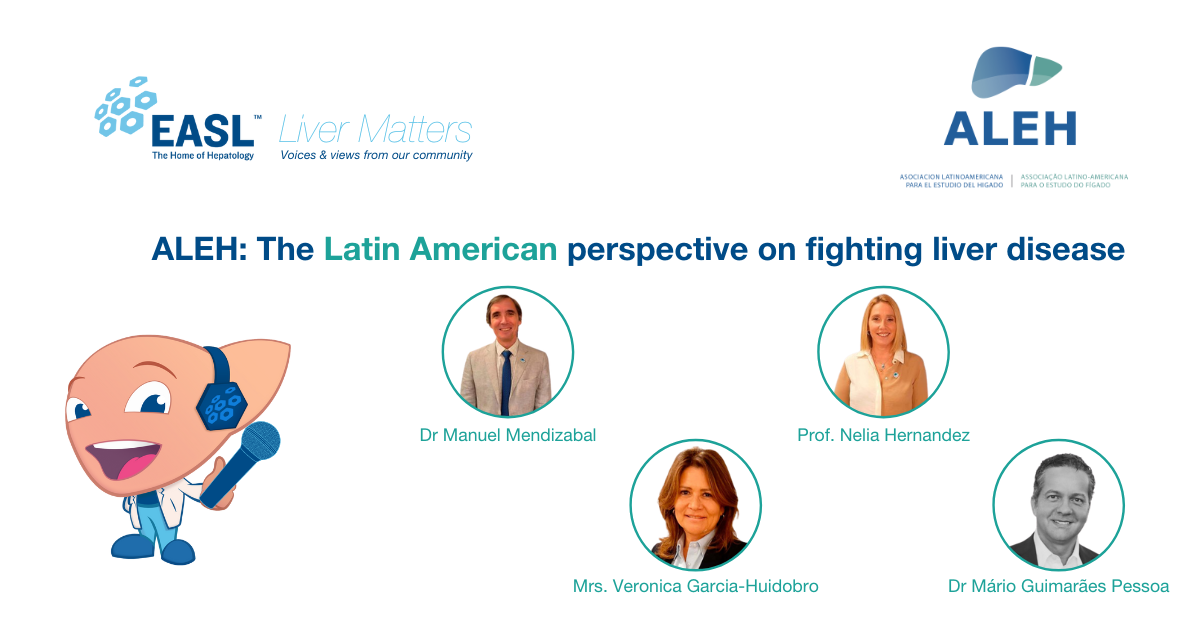
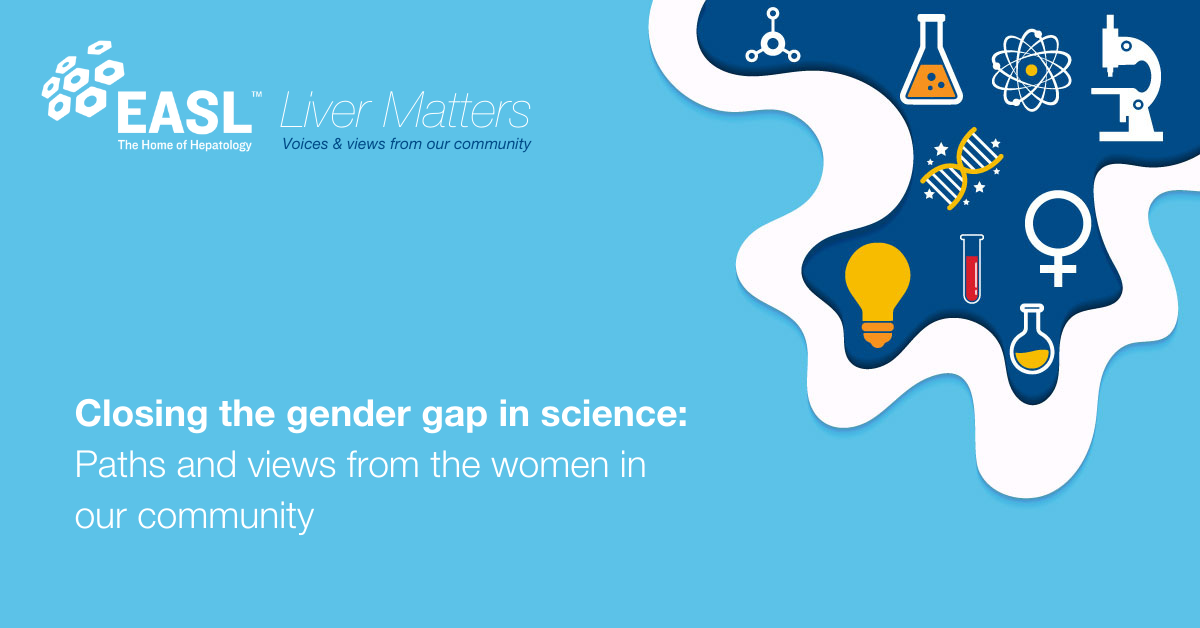
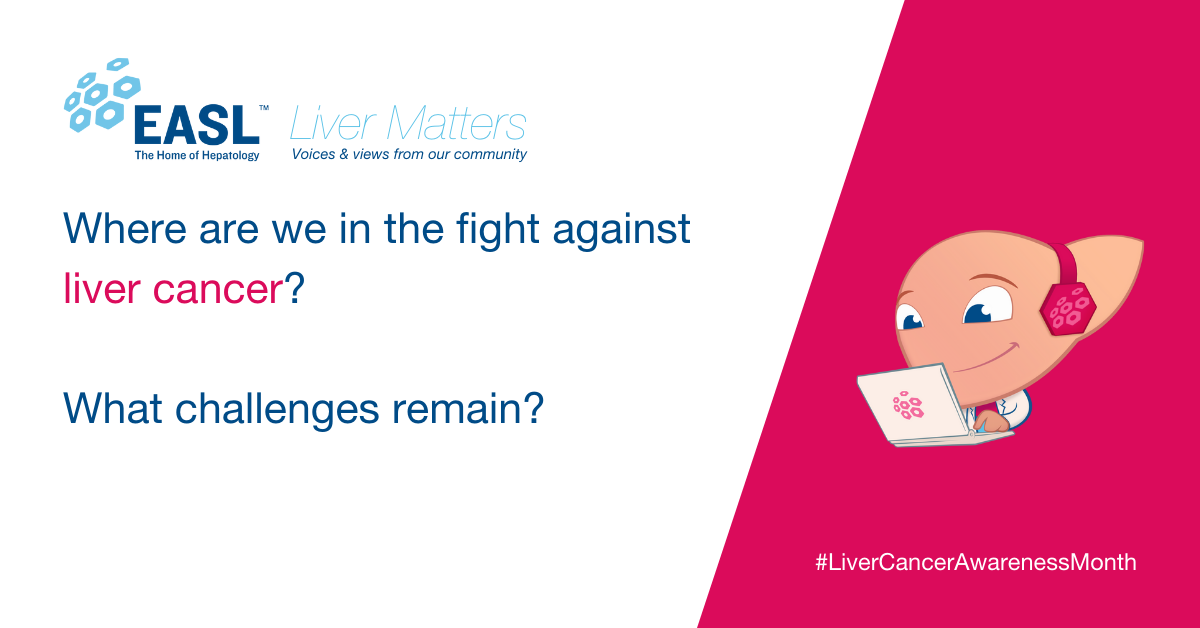
Comments (0)